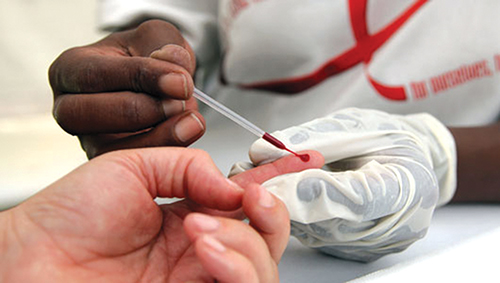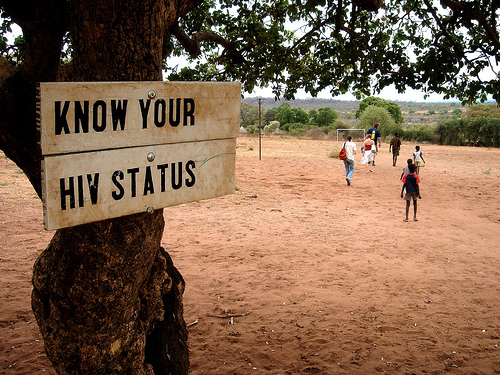The “Know Your Status” Theme Of World AIDS Day, And Why People Avoid HIV Testing
It is World AIDS Day today, December 1. It is also the 30th anniversary for World AIDS Day, which is held in respect to the many victims of AIDS, and also to centre around issues encompassing HIV and AIDS awareness.
And the theme for this year’s observance of World AIDS Day is “Know your status”.
Since 1988, the AIDS response has made significant progress and today millions of people living with HIV are leading healthy and productive lives. But we still have miles to go, as the latest UNAIDS report shows, and one of the challenges remaining is knowledge of HIV status.
HIV testing is essential for expanding treatment and achieving the 90-90-90 Targets. It also empowers people to make choices about HIV prevention, so that they can protect themselves and their loved ones.
As the global commitments to end AIDS make significant progress since 1988, around 75% of people living with HIV in the world knew their HIV status, as per UNAIDS. Also, about 59% of all people infected with HIV were accessing treatment. However, despite the availability of high-quality and effective treatment, new HIV infection cases are not declining fast enough, and too many people are still dying from AIDS-related diseases. Although getting an HIV test is quick and painless, many people still put it off. Here are five reasons why only a few people are getting tested for HIV.
Social stigma
This is one major factor that stops people from getting an HIV test. Unfortunately, the stigma associated with HIV as a disease, such as fear of banishment from their society or group, may play a role in stopping people from getting tested for the virus.
I don’t believe I am at high risk
You may be in a monogamous relationship (meaning both you and your partner are having sex only with each other), however, it’s important to get an HIV test, which is the only way to know for sure whether you or your partner has been infected with the virus. The CDC recommends that everyone between the ages of 13 and 64 gets tested for HIV at least once as part of routine health care. And people at high risk should get it done more often.
I always have protected sex
Not only via sexual contact, but HIV can be transmitted through activities like sharing needles or syringes or other equipment works used to prepare drugs for injection with someone infected with HIV. Less commonly, HIV can also be spread from mother to child during pregnancy, birth, or breastfeeding. Having protected sex doesn’t guarantee that you’re completely protected from HIV.
If I test positive for HIV, people will find out
In more civilized societies, no individual is compelled to disclose his/her HIV status except by an order of the court. There are laws that also prohibits any individual from publishing information or advocating feelings of hatred against HIV positive persons and those living with them. This means every establishment is obligated to keep HIV-related information protected. So the entire process of HIV testing and results are kept confidential. While these laws seek to prevent and control the spread of HIV and AIDS, it prohibits discrimination against persons with HIV and AIDS.
Scared of knowing your status
The fear of being diagnosed with HIV prevents many people from getting an HIV test. But this irresponsible attitude can only worsen the condition, especially if you have the virus but you’re not aware of your HIV status. Knowing your HIV status can help you and others stay safe. It might be difficult for you to accept that you have tested positive for HIV, but testing can help you take steps to protect your health as well as lower your risk of transmitting the virus. The bottom line is that whether positive or negative, HIV testing is a positive step.
About author
You might also like
Deola’s Corner: Fall Is Here And Here’s What I Want For TV
FOREWORD: So Deola apparently had so much fun writing that movie review, that he has decided to be the regular voice of movies and TV series here on Kito Diaries.
Deola’s Corner: Hot New TV Shows You Should Anticipate
With every new Fall season comes a roster of new TV shows from various networks hoping to make a mark and stick around. But the world of TV is harsh,
The Minority Report on What It Means To Be Queer
Queer is a term that has gone through a number of routes of significance for the LGBT community. First it was a slur. Then it got reclaimed as a way










0 Comments
No Comments Yet!
You can be first to comment this post!